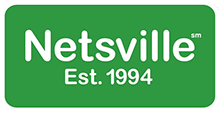It is estimated that more than 280 million people access the Internet in the United States, which is 88.5% of the U.S. population. Suffice to say, the Internet has become an integral part of contemporary living with subscribers expecting quick access throughout all aspects of their daily lives. Small businesses that rely heavily on a customer’s ability to find their digital shop on the web depend on having equal treatment, in terms of speed and reliability, from Internet Service Providers (ISPs), as do the largest corporations. This is why the latest milestone in the Net Neutrality debate is so important.
In 2015, the FCC ruled that ISPs were not allowed to block content, slow down applications, or accept fees for favorable treatment of bandwidth. Shortly after, the Internet companies challenged the FCC over the regulations arguing that the service they provide is a business for profit and should not be overseen by a federal regulatory agency. The FCC’s stance was that the Internet is primarily a utility, likening it to telephone and electricity services, and should be regulated as such. [For a more detailed look at the history of Net Neutrality, click here.]
In the latest ruling over this issue, the D.C. Circuit Court of Appeals upheld the previous ruling that broadband is a utility to the citizens of the United States. This backs the FCC rules that were made to protect Net Neutrality describing it as an “information service.” The decision also ensures: that ISPs provide equal access to everyone along the “last mile” of their broadband signal and not block applications and content to some users; that websites with less traffic will not be blocked out of searches; that websites with higher authority will not be allowed to get served to the end users more often than other sites; and that broadband providers will be barred from shaping how fast content is delivered to users by creating a fast and slow lane to users. Overall, this ruling ensures that consumers who use the Internet will have equal delivery of content and that broadband companies would be prohibited from impeding the delivery.
“Net neutrality ensures that all websites are treated equally regardless of content and competition.” – Netsville Staff
Without the FCC’s Net Neutrality rules, the Internet would become the very next place for inequality to grow. Those who could pay more would receive better service and access and ISPs would have the power to decide who gets to see what information. Those against Net Neutrality do not want over regulation by the government, which would give ISPs an excuse not to continue to grow their networks, improve on the technology, or improve their infrastructure. ISPs also want Congress to require any future regulations by the FCC to be accompanied by a cost-benefit analysis. The debate about Net Neutrality has slowed capital expenditures by ISPs because the reclassification to common carriers (utilities) concerns investors. ISPs invest billions in broadband infrastructure and its investors may grow a lack of confidence in continually investing in an industry that could become heavily regulated by the FCC.
The debate is not over with yet. Some Internet Service Providers have promised appeals to the U.S. Supreme court, but for now it is a win for the consumer and all of those who have voiced their concerns to keep the Internet open.
Based in Rochester, New York, Netsville is an Internet Property Management company specializing in managing the Digital Marketing, Technical, and Business Solutions for our customers since 1994. For more information, please click here.






